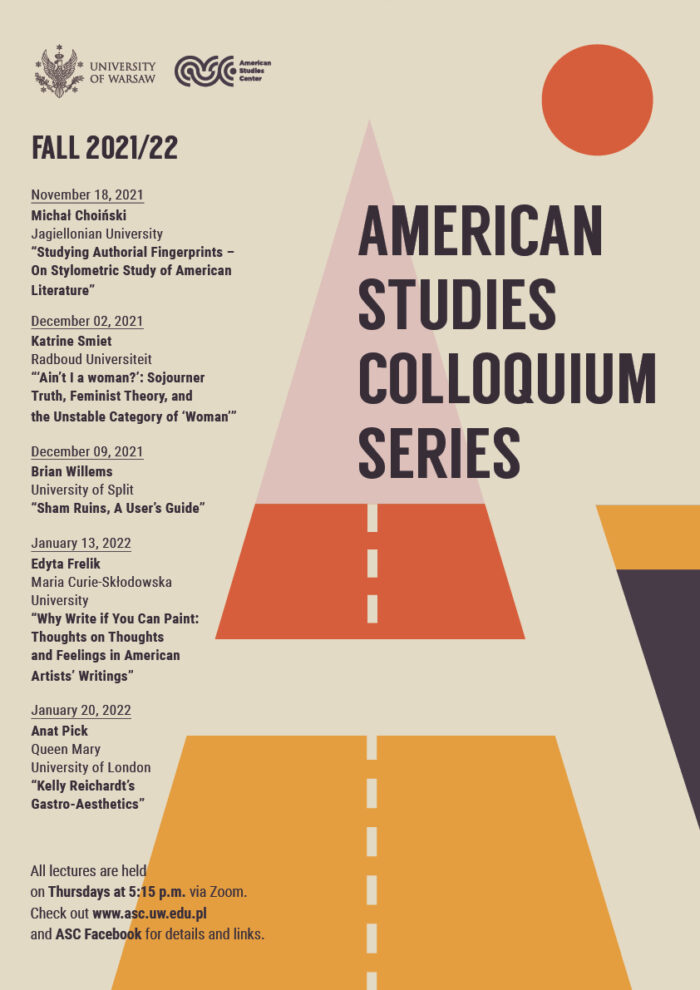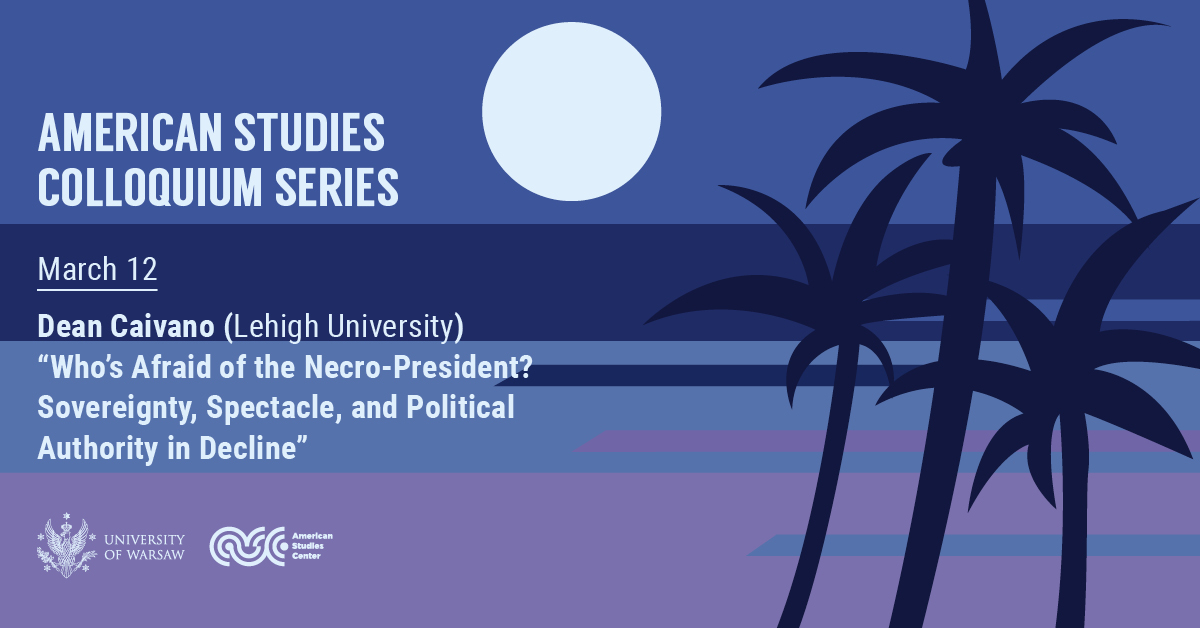We are pleased to announce an online lecture by
Michał Choiński
(Jagiellonian University)
Studying Authorial Fingerprints – On Stylometric Study of American Literature
This lecture is going to be the a part
of the 2021/2022 Fall Edition of the
American Studies Colloquium Series.
Thursday, November 18, 2021
at 5:15 p.m.
You can get 2 OZN points for participating in this event.
Check how to collect OZN points online here.

poster by Joanna Bębenek
Where?
This lecture will be streamed online. To attend, click the button below or enter https://us02web.zoom.us/j/85487323921 into your browser, and join the meeting.
What?
Stylometry allows one to study authorial signals in a text. But, by counting relative frequencies of words, one can establish not only who wrote a given novel or a shorts tory, but also how particular texts and groups of texts fit into the large background of literature, how the authorial signals of different authors evolve over time, and how various regional, linguistic and historical factors shape literature in scales often imperceptible to the reader’s naked eye. This paper will demonstrate how stylometric study of literature may help more traditional, qualitative approaches to American literature. By presenting research conducted together with Jan Rybicki (Institute of English Studies, Jagiellonian University) and Maciej Eder (Polish Academy of Sciences), I will demonstrate how stylometry can solve the problem of problematic authorship (based on the case of Harper Lee’s two novels), how it may help to trace the presence of an editor in a text (based on the case of American colonial writings), and how it may allow one to group texts based on their regional affiliation (by measuring the “Southernness” of various American writers).
Who?
Michał Choiński is Associate Professor in the Institute of English Studies at the Jagiellonian University, Kraków Poland. His academic interests include literature and culture of the American South, rhetoric and digital humanities. Choiński is the author of two books: “Rhetoric of the Revival” which came out with the JEC Center at Yale University in 2016, and “Southern Hyperboles” which came out in Louisiana State University Press in 2020. Michał has published almost thirty academic articles, with, among others, Mississippi Quarterly, Amerikastudien or Polish Journal of American Studies. In 2022, he’ be a senior Fulbright Fellow at Yale University. He is currently writing his third monograph on figurative representation of homecoming in the South. Choiński also writes popular articles on socio-historical contexts of music for “GAMA, Gazeta Magnetofonowa”. His poetry was published in literary journals in the UK, the USA and in Canada. Choiński’s latest poetic volume “Gifts Without Wrapping” came out with the Hedgehog Press in 2019, as a winner of Whie Label poetry competition.




